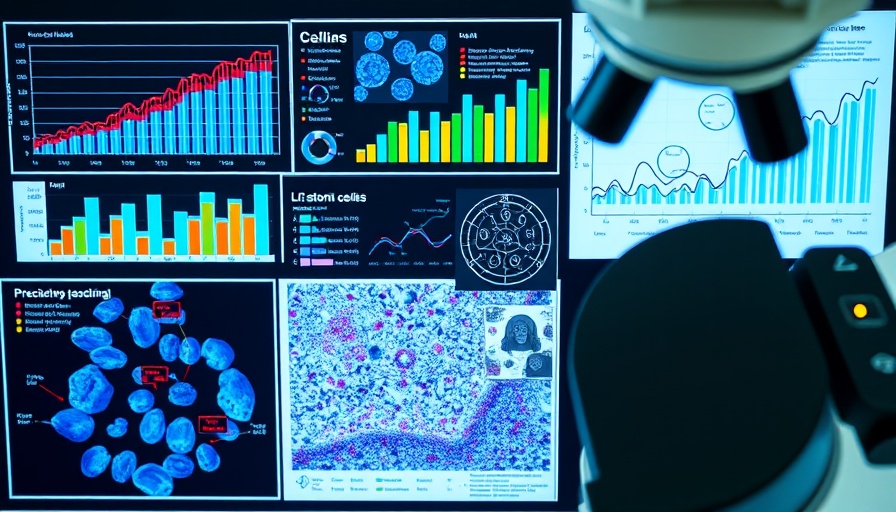
Exploring a New Frontier in Alzheimer's Treatment
As we continue to witness the rising prevalence of neurodegenerative diseases, particularly Alzheimer's disease (AD), the search for effective treatments intensifies. Current estimates suggest that over 55 million people worldwide suffer from dementia associated with AD and similar conditions. This year, researchers from Case Western Reserve University and associated medical institutions announced a promising new drug that aims to tackle this formidable foe by targeting an unexpected ally: the blood-brain barrier (BBB).
The Guardian of the Brain: Understanding the Blood-Brain Barrier
The blood-brain barrier serves as a critical protective layer between the brain and the bloodstream. It regulates the movement of molecules, allowing essential nutrients to pass through while keeping harmful substances, such as bacteria and viruses, at bay. As research progresses, scientists have identified that the deterioration of the BBB can serve as an early warning sign for various neurodegenerative conditions, including Alzheimer's and traumatic brain injury (TBI). Protecting and restoring this barrier could be key in preventing disease progression.
Groundbreaking Research Focused on 15-PGDH Enzyme
In the innovative study published on May 21, 2025, in Proceedings of the National Academy of Sciences, the research team unveiled their strategy to inhibit the enzyme 15-PGDH, which plays a role in immune response within the brain. Co-lead researcher Dr. Andrew Pieper emphasized the significance of this approach, stating, "Our findings suggest an effective new way to safely prevent neurodegeneration and cognitive impairment in Alzheimer's disease by directly protecting the blood-brain barrier." In trials involving mouse models, the drug successfully preserved BBB integrity, preventing neurodegeneration and maintaining cognitive function.
Expanding Horizons in Neurodegenerative Disease Research
This paradigm shift towards targeting the blood-brain barrier marks a significant departure from traditional approaches that primarily focused on neurons. Disruptions to BBB integrity have been recognized as a catalyst for neurodegeneration, making this research particularly relevant in the context of advancing treatment options. The collaborative effort underscores not only a deeper understanding of Alzheimer’s pathology but also the potential for broader applications in combating other neurodegenerative diseases.
Real-World Implications for Health and Wellness
With Alzheimer's disease impacting millions globally, the implications of this research reach far beyond the laboratory. If successful in clinical trials, treatments derived from this study may help protect and enhance brain health—thus offering invaluable support to individuals struggling with degenerative diseases. Moreover, this has potential implications in community health and wellness initiatives, particularly in the realm of healthy aging and longevity.
Key Takeaway: The Future of Alzheimer's Research
As we look towards the future, the implications of these findings are tremendous. If the new drug demonstrates similar protective qualities in human trials, it could open new avenues of treatment and significantly alter the landscape of Alzheimer's and other neurodegenerative diseases. The integration of community-based health and wellness strategies can play a vital role in supporting research initiatives and educating the public about preventative measures.
What You Can Do Today
Maintaining brain health and a healthy lifestyle is crucial for everyone, especially as we age. Incorporating brain-healthy foods, staying active, and engaging in social activities can contribute to overall wellness. If you're interested in learning more about healthy living or exploring nutritional supplements beneficial for cognitive function, consider visiting local health and wellness centers or checking out reputable resources online.
In conclusion, stay informed about developments in Alzheimer's research as they unfold, and explore how you can contribute to greater community health and wellness.
 Add Row
Add Row  Add
Add 




 Add Row
Add Row  Add
Add 


Write A Comment